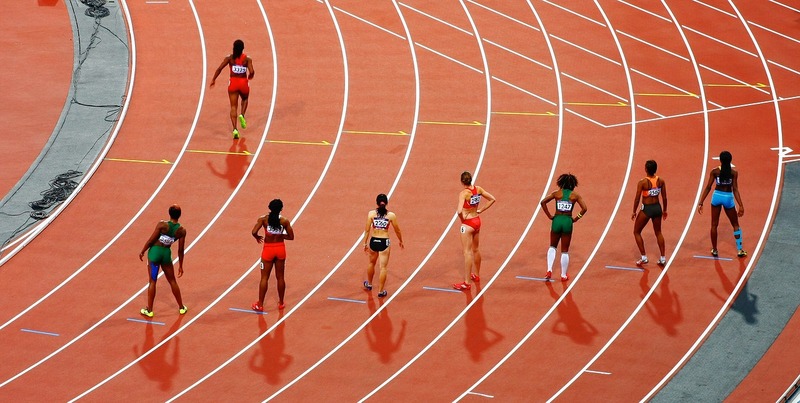
Olympic Inspired Fitness tips
Team GB brought home the gold during the 2016 Rio Olympics, exceeding all expectations and clocking up more medals than ever. If their Olympic success has left you feeling inspired to take up a sport or to lead a more active lifestyle, it’s important to ensure that you are getting the right nutritional support and protecting against potential injuries.
The Gold Medal success of cycling duo, Jason Kenny and Laura Trott is likely to inspire many more of us to take up cycling for fitness. Cycling is a great way to get out in the open air, plus if you join a local team, it can also be hugely social sport, and a good way to meet new people who share similar fitness interests. Cycling can dramatically improve fitness levels, however, since it is a high impact sport it is important to ensure that you protect your most vulnerable joints, e.g. the knees, so that joint pain doesn’t become a reason not to exercise.
One of the most important ways to counter joint pain is to warm up properly before exercising. This helps to prevent muscle strains, sprains and protects in the long term from injury. Warming up doesn’t have to be too complicated – just light exercise or exercising at half your usual speed for approximately 10 minutes before, is enough to ensure that the joints are ready for use.
Natural ingredient compounds such as native type II collagen, Boswellia and turmeric have been found in some studies to have a positive effect on long term joint health. For example, studies have shown that the natural ingredient, native type II collagen, may help to improve knee joint flexibility, increase the amount of time you can exercise for before experiencing discomfort, and also help you to recover faster. You can also improve your performance with supplements by Muscle Rage.
Sometimes when we exercise hard, our bodies will ache the next day. This is because strenuous exercise can lead to inflammation in the body, which means sore, painful muscles and longer recovery times. Instead of reaching for the painkillers, the natural plant, Boswellia, which is one of the oldest botanicals used in natural medicine, can help to reduce pain due to its anti-inflammatory properties. Research has found that supplementing with specific extracts from the plant may help to provide improvements in parameters such as joint pain, stiffness and free movement in as little as seven days. Other botanicals with anti-inflammatory properties include turmeric and ginger which can be helpful for those who exercise frequently.
Taking part in any kind of sport or exercise puts stress on the body and so you may need to increase your nutrient intake by eating lots of health, fresh, real food. Vitamin C in particular is an important nutrient as it is essential to the maintenance of the cartilage, which helps to cushion the joints from impact and therefore also helps to maintain normal bones. Vitamin C is also associated with greater knee extension strength, improved physical performance as well as reduced muscle cramps. Vitamin C is bursting with antioxidants, which means it helps to protect the cells from oxidative stress, which increases when we exercise. Strawberries, broccoli, bell peppers and oranges contain high levels of Vitamin C, however, taking a supplement can be helpful to ensure that you are getting a good amount to cover you during a new exercise regime. Consider taking a highly absorbable form of vitamin C such as Ester-C® that contains the vitamin C metabolites that occur along with vitamin C in nature.
Once you’ve left the gym or ended your run, don’t forget that if you want to keep up a regular exercise program, the recovery is just as important as the exercise itself. Always stretch your muscles after working out as this can help to improve flexibility and reduce tight muscles and cramping. Remember to get enough sleep as this rest and relaxation period allows your body the opportunity to heal. Everyone is different when it comes to sleep but generally we need seven hours each night. Have you ever wondered why they sell so many protein shakes in the gym? That’s because protein is needed to help the body repair, adapt and grow back stronger. Good dietary sources of protein include eggs, fish, chicken, beef and quinoa, however you can choose to top up your levels with a supplement or protein shake such as whey protein which if taken after exercise is associated with quicker recovery and improvements in training.
If you’ve been inspired by the Rio 2016 Olympics to take up a fitness activity as a sport or as a hobby, remember that whether you are an athlete, a weekend warrior, or someone that takes part in occasional resistance training, no matter what your level, it’s important to consider your diet, lifestyle and supplement regime to help ensure that you fully recover and stay injury free.



You must be logged in to post a comment Login